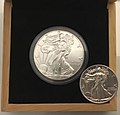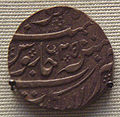Portal:Numismatics
The Numismatics Portal

Numismatics is the study or collection of currency, including coins, tokens, paper money, medals and related objects.
Specialists, known as numismatists, are often characterized as students or collectors of coins, but the discipline also includes the broader study of money and other means of payment used to resolve debts and exchange goods.
The earliest forms of money used by people are categorised by collectors as "odd and curious", but the use of other goods in barter exchange is excluded, even where used as a circulating currency (e.g., cigarettes or instant noodles in prison). As an example, the Kyrgyz people used horses as the principal currency unit, and gave small change in lambskins; the lambskins may be suitable for numismatic study, but the horses are not.[dubious – discuss] Many objects have been used for centuries, such as cowry shells, precious metals, cocoa beans, large stones, and gems. (Full article...)
Selected article -
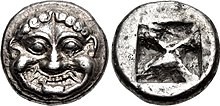
The history of ancient Greek coinage can be divided (along with most other Greek art forms) into four periods: the Archaic, the Classical, the Hellenistic and the Roman. The Archaic period extends from the introduction of coinage to the Greek world during the 7th century BC until the Persian Wars in about 480 BC. The Classical period then began, and lasted until the conquests of Alexander the Great in about 330 BC, which began the Hellenistic period, extending until the Roman absorption of the Greek world in the 1st century BC. The Greek cities continued to produce their own coins for several more centuries under Roman rule. The coins produced during this period are called Roman provincial coins or Greek Imperial Coins. (Full article...)
Selected image
Did you know...

- ...that with its two-dollar coin (reverse pictured), Newfoundland was the only British colony to issue circulating gold coinage?
- ...that Mount Burgess is nicknamed the Ten Dollar Mountain because it was featured on Canadian currency?
- ...that the American Buffalo gold bullion coin was the first .9999 fine 24-carat gold coin released by the United States Mint?
- ...that the Alabama centennial half dollar was the first commemorative coin minted with the image of a living individual?
- ...that Aksumite currency was the only native coinage to be issued in Africa without direct influence by an outside culture like Roman, Greek, etc...?
Related portals
Selected coin -
The American Platinum Eagle is the official platinum bullion coin of the United States. In 1995, Director of the United States Mint Philip N. Diehl, American Numismatic Association President David L. Ganz, and Platinum Guild International Executive Director Jacques Luben began the legislative process of creating the Platinum Eagle. After over two years of work, the 99.95% fine platinum coins were released by the United States Mint in 1⁄10, 1⁄4, 1⁄2 and 1 troy oz denominations. In late 2008, the fractional denominations were discontinued, leaving only the one ounce denomination. The Platinum Eagle is authorized by the United States Congress, and is backed by the United States Mint for weight, content, and purity. Its obverse was designed by John Mercanti, and portrays the Statue of Liberty (Liberty Enlightening the World) by Frédéric Auguste Bartholdi.
Proof versions of the coins are intended for coin collectors and sold directly to the public whereas the bullion versions are sold only to the Mint's authorized buyers. The proof American Platinum Eagles are unique in the fact that they are the only U.S. bullion coins that have a yearly alternating design. Bullion versions are minted with the same design every year. While minted, the uncirculated Platinum Eagles matched the proof designs and were struck on burnished coin blanks with a "W" mint mark signifying West Point, further distinguishing them from the bullion versions. (Full article...)
Selected banknote image -
General images -
Numismatic terminology
- Bullion – Precious metals (platinum, gold and silver) in the form of bars, ingots or plate.
- Error – Usually a mis-made coin not intended for circulation, but can also refer to an engraving or die-cutting error not discovered until the coins are released to circulation. This may result is two or more varieties of the coin in the same year.
- Exonumia – The study of coin-like objects such as token coins and medals, and other items used in place of legal currency or for commemoration.
- Fineness – Purity of precious metal content expressed in terms of one thousand parts. 90% is expressed as .900 fine.
- Notaphily – The study of paper money or banknotes.
- Scripophily – The study and collection of stocks and Bonds.
WikiProjects
Numismatic topics
Money - Coins - Banknotes - Electronic money - Exchange rate - Legal tender - Clubs - Terminology
Ancient currency: Asia - Byzantium - Greece - Primitive Money - Roman - Indian coinage
Modern currency: Africa - The Americas - Asia and the Pacific - Europe - Bullion coins - Challenge coin - Commemorative coins - Token coins
Economics: Banking - Bonds - Cheques - Credit Cards - Fiat currency - Gold standard - Mints - Monetary union - Reserve currency - Stocks
Production: Coining (machining) - Designers - Die making - Mint (coin) • Coinage Metals: Aluminum - Bronze - Copper - Gold - Platinum - Silver - Tin
Subcategories
Most traded currencies
| Currency | ISO 4217 code |
Symbol or Abbrev.[2] |
Proportion of daily volume | Change (2019–2022) | |
|---|---|---|---|---|---|
| April 2019 | April 2022 | ||||
| U.S. dollar | USD | $, US$ | 88.3% | 88.5% | |
| Euro | EUR | € | 32.3% | 30.5% | |
| Japanese yen | JPY | ¥, 円 | 16.8% | 16.7% | |
| Sterling | GBP | £ | 12.8% | 12.9% | |
| Renminbi | CNY | ¥, 元 | 4.3% | 7.0% | |
| Australian dollar | AUD | $, $A | 6.8% | 6.4% | |
| Canadian dollar | CAD | $, Can$ | 5.0% | 6.2% | |
| Swiss franc | CHF | Fr., fr. | 4.9% | 5.2% | |
| Hong Kong dollar | HKD | $, HK$, 元 | 3.5% | 2.6% | |
| Singapore dollar | SGD | $, S$ | 1.8% | 2.4% | |
| Swedish krona | SEK | kr, Skr | 2.0% | 2.2% | |
| South Korean won | KRW | ₩, 원 | 2.0% | 1.9% | |
| Norwegian krone | NOK | kr, Nkr | 1.8% | 1.7% | |
| New Zealand dollar | NZD | $, $NZ | 2.1% | 1.7% | |
| Indian rupee | INR | ₹ | 1.7% | 1.6% | |
| Mexican peso | MXN | $, Mex$ | 1.7% | 1.5% | |
| New Taiwan dollar | TWD | $, NT$, 圓 | 0.9% | 1.1% | |
| South African rand | ZAR | R | 1.1% | 1.0% | |
| Brazilian real | BRL | R$ | 1.1% | 0.9% | |
| Danish krone | DKK | kr., DKr | 0.6% | 0.7% | |
| Polish złoty | PLN | zł, Zl | 0.6% | 0.7% | |
| Thai baht | THB | ฿, B | 0.5% | 0.4% | |
| Israeli new shekel | ILS | ₪, NIS | 0.3% | 0.4% | |
| Indonesian rupiah | IDR | Rp | 0.4% | 0.4% | |
| Czech koruna | CZK | Kč, CZK | 0.4% | 0.4% | |
| UAE dirham | AED | د.إ, Dh(s) | 0.2% | 0.4% | |
| Turkish lira | TRY | ₺, TL | 1.1% | 0.4% | |
| Hungarian forint | HUF | Ft | 0.4% | 0.3% | |
| Chilean peso | CLP | $, Ch$ | 0.3% | 0.3% | |
| Saudi riyal | SAR | ﷼, SRl(s) | 0.2% | 0.2% | |
| Philippine peso | PHP | ₱ | 0.3% | 0.2% | |
| Malaysian ringgit | MYR | RM | 0.2% | 0.2% | |
| Colombian peso | COP | $, Col$ | 0.2% | 0.2% | |
| Russian ruble | RUB | ₽, руб | 1.1% | 0.2% | |
| Romanian leu | RON | —, leu | 0.1% | 0.1% | |
| Peruvian sol | PEN | S/. | 0.1% | 0.1% | |
| Bahraini dinar | BHD | .د.ب, BD | 0.0% | 0.0% | |
| Bulgarian lev | BGN | лв., lv., lev | 0.0% | 0.0% | |
| Argentine peso | ARS | $, Arg$ | 0.1% | 0.0% | |
| Other currencies | 1.8% | 2.3% | |||
| Total: | 200.0% | 200.0% | |||
References
- ^ Triennial Central Bank Survey Foreign exchange turnover in April 2022 (PDF) (Report). Bank for International Settlements. 27 October 2022. p. 12. Archived (PDF) from the original on 2022-10-27.
- ^ "Currency Units". Editorial Style Guide (PDF). World Bank Publications. p. 134–139.
Web resources
- NumisWiki
- International Association of Professional Numismatists
- American Numismatic Association
- American Numismatic Society
- British Numismatic Association
- American Vecturist Association
- Challenge Coin Association
- Numismatic Museum of Athens, Greece
- The Perth Mint Australia
- Central Mint of China
- Royal Mint
- The French Mint
- United States Mint
- Bank of Russia
- Royal Canadian Mint
- Exact Change numismatic software
Things you can do
|
|
 |
Here are some tasks awaiting attention:
|
Associated Wikimedia
The following Wikimedia Foundation sister projects provide more on this subject:
-
Commons
Free media repository -
Wikibooks
Free textbooks and manuals -
Wikidata
Free knowledge base -
Wikinews
Free-content news -
Wikiquote
Collection of quotations -
Wikisource
Free-content library -
Wikiversity
Free learning tools -
Wiktionary
Dictionary and thesaurus


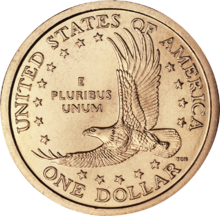

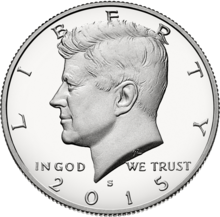


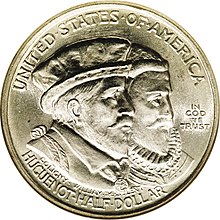

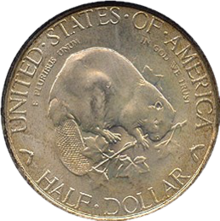


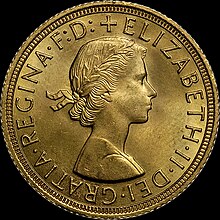

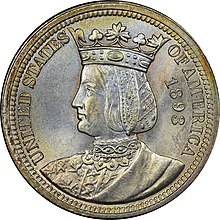
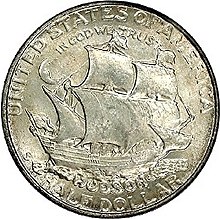




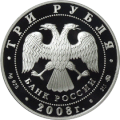




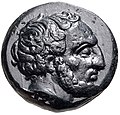




























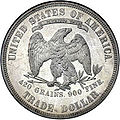





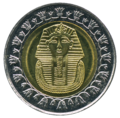






![Image 50Chinese round coins, Eastern Zhou dynasty – Warring States Period, c. 300–220 BC. Four Hua (四化, 30mm, 6.94 g). Legend Yi Si Hua ([City of] Yi Four Hua). (from Coin)](http://upload.wikimedia.org/wikipedia/commons/thumb/f/f9/CHINA%2C_Eastern_Zhou_dynasty_-_Warring_States_Period._State_of_Q%C3%AD._City_of_Yi._Circa_300-220_BC.jpg/120px-CHINA%2C_Eastern_Zhou_dynasty_-_Warring_States_Period._State_of_Q%C3%AD._City_of_Yi._Circa_300-220_BC.jpg)





